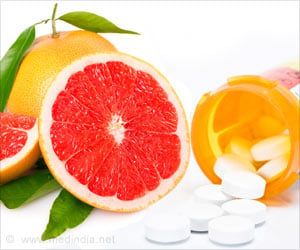A scientific statement from the American Heart Association provides guidance for managing statins and heart disease drug interactions.
Highlights
- Drug-drug interaction is the interaction between two or more drugs when administered together.
- A new scientific statement from the American Heart Association provides guidance for managing potential drug interactions between statins and heart disease drugs.
- Statement guidance helps to minimize the risk of adverse effects associated with drug interactions.
Statement Guidance for Managing Statins and Heart Disease Drug Interactions
Barbara S. Wiggins, Pharm.D., Clinical Cardiology Pharmacy Specialist, Medical University of South Carolina, Charleston and chair of writing committee of the scientific statement said, "Healthcare providers and their patients who take statins need to be aware that these medications could interact with their other heart disease medications, such as medications to control blood pressure, treat abnormal heart rhythms, and other""While many of these drug combinations are safe, every patient is different and will tolerate medications differently. Patients need to be aware that interactions can occur and should speak to their healthcare providers about any unusual side effects or concerns," she said.
Interaction between the drugs usually occur when two or more medicines are taken together and this might either enhance or inhibit the effectiveness of one or both the drugs.
It is estimated that around 2.8 % of cases admitted to the hospitals are due to drug interactions which may be even higher because most of the patients are admitted for issues related to adverse drug reactions and side effects or underlying medical conditions like thyroid or rheumatic disease which may conceal drug interactions.
The writing committee highlighted few changes for labeling statins after identifying potential drug interactions between statins and other heart disease medications.
Heart Disease Medications with Statins
Some of the heart disease medications examined by the writing committee for potential drug interactions with statins include:- Antiarrhythmic drugs
- Congestive heart failure drugs
- Anti-platelet and anticoagulant drugs
- Immunosuppressive agents
- Calcium channel blockers
- Non-statin cholesterol drugs
How to Minimize the Risk of Adverse Effects
The statement guidance for minimizing the risk of adverse effects include:- Health care providers to review and identify the medications taken by statin-treated patients during their hospital visit.
- Possible drug interactions between statins and heart disease drugs should be identified and evaluated at an earlier stage.
- Appropriate dose adjustments can be done to manage potential drug interactions.
- Discontinuing the interacting medicine or prescribing a safer statin medication for treatment can minimize the risk of adverse effects.
Use of Statins and Heart Disease Medications
Statin drugs like atorvastatin, lovastatin, pravastatin, rosuvastatin or simvastatin may be prescribed for the treatment of atherosclerosis (hardening or narrowing of the arteries due to the plaque build up inside the arteries).
Heart disease medications include:
- Antiarrhythmic drugs like amiodarone, procainamide, mexiletine for treatment of abnormal heart rhythms,
- Anti-platelet and anticoagulant drugs like aspirin, warfarin for thinning blood,
- Calcium channel blockers like amlodipine, nifedipine, felodipine for blood pressure treatment,
- Non statin cholesterol drugs for the treatment of high cholesterol levels,
- Congestive heart failure drugs and immunosuppressive agents for heart transplant patients.
Drug interaction is usually an interaction between two or more drugs when administered together. They are broadly classified as
Pharmacodynamic drug interactions: Drug interactions that occur when the mode of action of one drug interferes with another.
Pharmacokinetic drug interactions: This type of drug interaction occurs when properties like absorption, distribution, metabolism or excretion of one drug interfere with another drug.
Common Reasons for Drug Interactions:
- Lack of knowledge among health care providers about potential drug interactions.
- Patient may consult several health care professionals for treatment and may be prescribed with multiple drugs which might lead to interaction.
- Several drugs taken for multiple health issues by elderly patients may also be a reason for drug interactions.
- Drug Development and Drug Interactions - (http://www.fda.gov/Drugs/DevelopmentApprovalProcess/DevelopmentResources/DrugInteractionsLabeling/ucm080499.htm)
- Atherosclerosis - (http://www.heart.org/HEARTORG/Conditions/Cholesterol/WhyCholesterolMatters/Atherosclerosis_UCM_305564_Article.jsp#.WARbKMmSTIU)
- Heart Disease, Stroke and Research Statistics At-a-Glance - (https://www.heart.org/idc/groups/ahamah-public/@wcm/@sop/@smd/documents/downloadable/ucm_480086.pdf)















